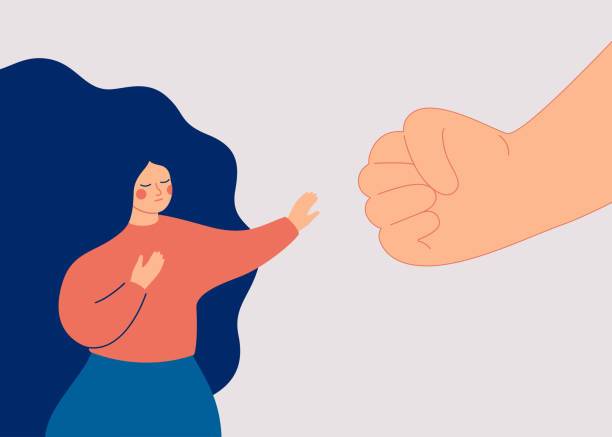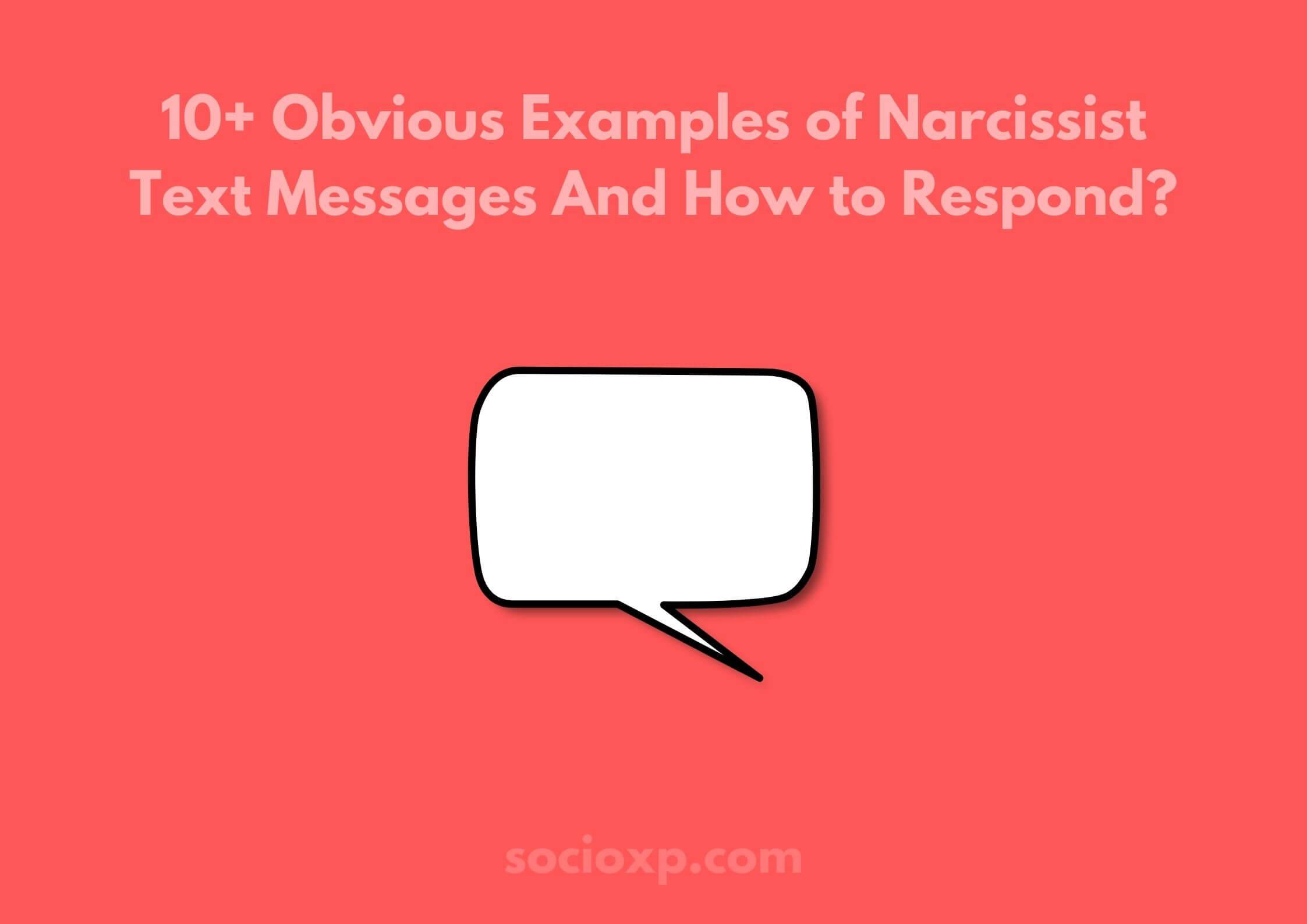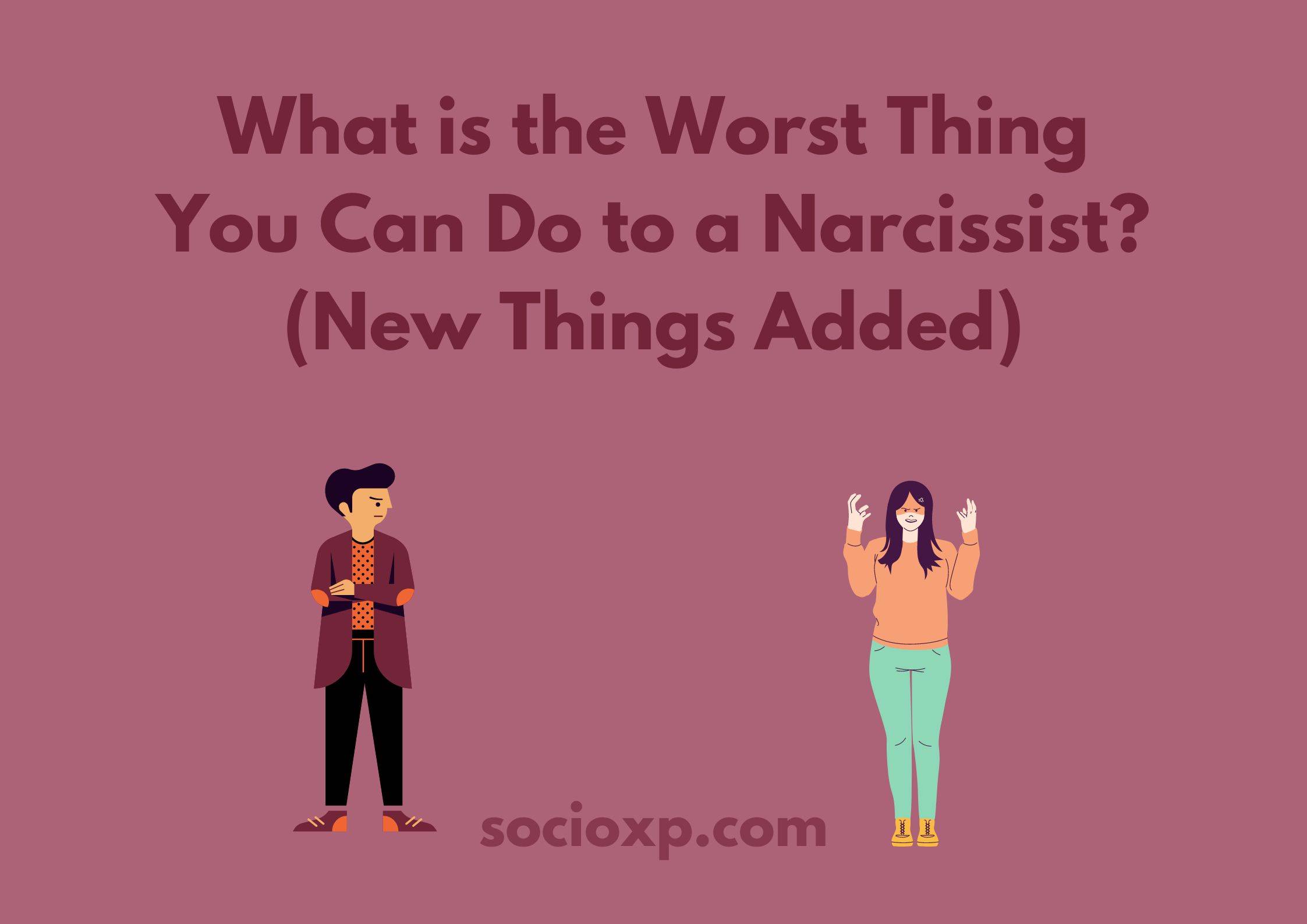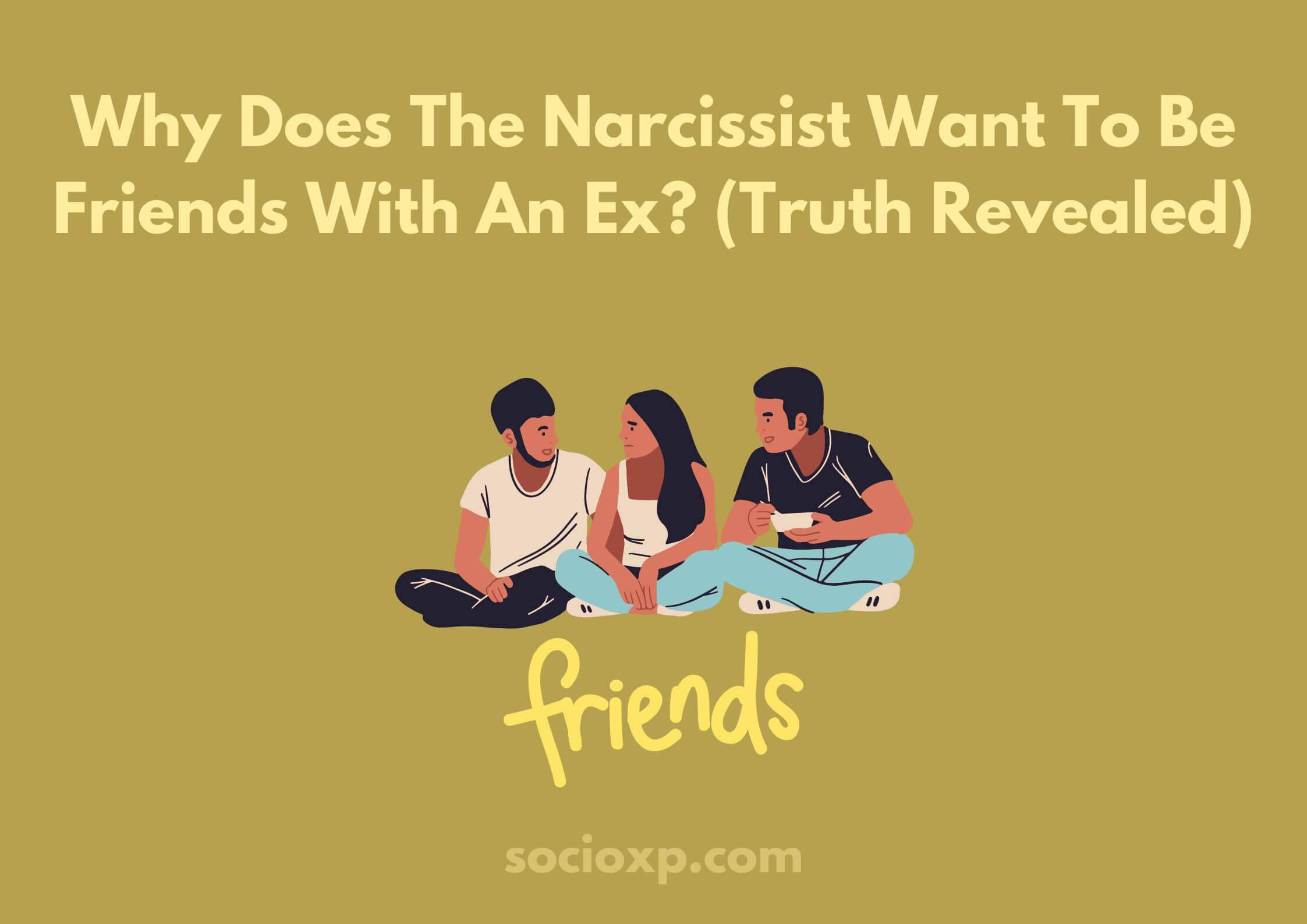How Narcissistic Abuse can cause PTSD? – Uncovering the Symptoms
How Narcissistic Abuse can cause PTSD? You might have come across this word while referring to stress and post-relationship trauma. You may have heard this term in clinical terms from your therapists or mental health experts.
So what exactly is PTSD? How does PTSD stem from narcissistic abuse? What are some symptoms? and Does it get better with time? Let us know further.

Abuse is not only that which is physical and that is visible. Abuse can come in many forms. It may range from physical abuse to authoritarian dominance. When you have or had a narcissistic partner in the past, abuse can take as many forms as possible, from emotional to physical. This abuse is often known as a narcissistic cycle of abuse as it is repetitive and never-ending. Narcissistic abuse may come in many forms and shapes.
What is Narcissistic Abuse?
Abuse in a relationship follows a pattern that includes, a damaging incident, followed by hurt, accompanied by reconciliation, a smooth period of calm again followed by tension, and lastly by settlement between both partners. In this case, the hurtful or damaging incidents are caused by the abusive partner, and the victim is always the other partner, who might bear the consequences of the derogatory nature of their partner.
Abuse or repetitive abuse is always followed by an insincere or feigned apology in some cases, justifications, blame shifts, a period of pause of calm, and acceptance of abuse and thus this becomes a cycle of abuse for the abusive partner and the cycle of acceptance and apologies for the other partner in the relationship.
The Narcissistic cycle of abuse may have a similar approach to abusive relationships but with an extra touch of love bombing, insulting, devaluing, and discarding. Narcissists have altogether different perspectives when it comes to dating or loving. Narcissists are extra with everything they do, meaning they are extra affectionate in the initial stages of the relationship, then it gradually comes down to devaluing and hurting their partners and with the final stage of discarded. Narcissists never settle or adjust they just discard their partners and move on to their next partner within no time.

The victims of narcissistic abuse usually accept the abusive behavior and start feeling okay with it and also adjust to the same to keep the relationship going. They might even start to ignore the abusive behavior in the eventual hopes of working out things in the relationship.
Narcissistic abuse often gets overlooked, or just starts to feel normal after a while as narcissists manipulate their victims and blindfold them virtually with their sweet, charming, and fake personalities, so much so that they are no longer able to draw differences between healthy and unhealthy behavior. Thus narcissistic abuse may not be visible that vividly as it may be more inclined to a subtle form of abuse, but it is like slow poison for the victims which may tear them down emotionally.
Narcissistic abuse can lead to many negative effects on the victims like,
- PTSD (Post-traumatic Stress Disorder)
- Anxiety
- Depression
- Life long Traumatic memories
- Sleep difficulties
- Cognitive issues
- Fear and Panic
- Headaches and body aches
- A breeding ground for more mental health disorders
One such particular negative repercussion of narcissistic abuse is being discussed here further, PTSD, which has become more common among narcissistic abuse victims and needs to be acknowledged more attentively.
What is PTSD (Post-traumatic Stress Disorder)?
Post-traumatic Stress Disorder generally referred to as PTSD; is a mental health condition that can occur in people who have witnessed, experienced, or played any role in any traumatic event. PTSD can be caused by a single traumatic event. When traumatic events take place in a loop one after the other causing repeated trauma, then such a continuity of traumatic events can cause Complex Post-traumatic Stress Disorder (C-PTSD).
C-PTSD and PTSD both can occur to the victims of Narcissistic abuse but C-PTSD is more likely to occur in victims of Narcissistic abuse as narcissistic abuse is not a single-time event, and it is a series of abuse that occurs in a loop. Narcissists keep on repeating their manipulation, and the victims either accept it or keep turning a blind eye to those traumatic events.
Eventually, the victims either get completely trapped in the narcissist’s manipulative net or just cease to get into any relationships, as they feel every relationship may get troublesome. The victims either do not understand and identify that they are dating a narcissist and keep on suffering at their hands, or just acknowledge it after a long period of time when they might have been completely drained and brainwashed.

Causes of PTSD (Post-traumatic Stress Disorder)
Though the exact causes of PTSD and C-PTSD are unknown, prolonged exposure to traumatic events or witnessing life-wrecking events can more likable be the cause of PTSD and C-PTSD. Those events may include,
- Any kind of Physical or Sexual Assault by a loved one, or by anyone
- Facing a natural disaster
- Bearing and accepting the death of a loved one
- Chronic Illness or a Life-threatening mental or physical health condition
- Domestic Violence
- Child Abuse
- Mental, physical, and emotional abuse
- Traffic accidents
- War
- Constant threats or dangers
- Heredity or a family history of anxiety attacks or depression
Symptoms of PTSD (Post-traumatic Stress Disorder)
The visible symptoms may start occurring within a week or a month of exposure to a traumatic event. Though the span may vary for different individuals. For some it may take a month or for some it may take years to display the symptoms. However, the time may not be a problem here, but the disruption is.
These symptoms may affect a person adversely so much so that they may start facing problems in leading their regular lives peacefully. These symptoms can cause a notable problem for a person in dealing socially with friends, family, or workplace. PTSD majorly affects romantic relationships as a person may not be able to develop trust and believe in love and may constantly be left fearing and terrified of romantic relationships if their previous relationship was with someone narcissistic.
Symptoms of PTSD may start hindering a person’s routine and normal life. Though symptoms of PTSD may vary from person to person, there are a few generalized symptoms that have been mentioned. According to an overview published by the Mayo Clinic, symptoms of PTSD can be categorized into four types,
Intrusive Memories
The symptoms of intrusive memories may include,
- Having constant flashbacks of the traumatic event right after its occurrence
- Several emotional sufferings like loss of trust, loss of faith and hope, loss of expectations, and many such emotional changes.
- Exposure to a certain something may take you back to the traumatic event altogether. For instance a song, a name, a thing, or anything that may have been present at the occurrence of the traumatic event. For instance, if a person is constantly being abused emotionally by some other person, let’s say a narcissist, and they had a habit of singing a song, or a tune, then the relapse of those traumatic memories may come rushing as soon as that melody or that song plays.
- Having bad dreams and tragic nightmares due to the traumatic event
Avoidance
Avoidance symptoms may be,
- Avoiding places, people, or any such activities that may remind you of the traumatic past event
- Trying to avoid even thinking or being afraid to mention anything about the past traumatic event

Negative changes in thinking processes and frame of mind
Negative changes in the frame of mind due to traumatic events, symptoms may include,
- Lack of interest in activities that once you appreciated or liked doing
- Feeling emotional numbness
- Having negative thoughts often about yourself and other people around you
- Being hopeless about the future, having hopeless perceptions
- Having problems to remember, loss of certain memory due to traumatic events
- Lack of positivity in life, having a negative approach toward life
- Difficulty in maintaining other relations, losing trust, and difficulty approaching people
- Trouble building new relationships, especially romantic relationship
- Difficulty in emoting positive emotions
Changes in Physical and Emotional Reactions
Some notable symptoms of changes in Physical and Emotional Reactions,
- Engaging in self-destructive behavior which may also include substance abuse like alcoholism, drug addiction, or any sort of negative influence and addiction
- Disruptive sleep cycle
- Being frightened and shocked due to the changes in life that were brought about by the traumatic event
- Getting irritated and getting little episodes of anger outbursts
How Narcissistic Abuse can cause PTSD?
Narcissists have a tendency to use people for their needs and desires. They just seek attention and control. They believe the world revolves around them and they are entitled to have whatever they desire.
Narcissistic abuse includes withholding affection, telling lies, emotional abandonment, manipulation, rage, guilt-tripping, silent treatments, and much more. These tactics can be used by narcissistic parents, abusive narcissistic partners, narcissistic co-workers, manipulative narcissistic friends, or anybody who displays narcissistic traits and characteristics.
The narcissistic cycle of Abuse leaves the person experiencing emptiness, deep scars, and a long-lost connection with the world. Narcissists have a very negative impact on their partners and thus their partners find it hard to recognize genuine feelings once they are out of the toxic narcissistic cycle of abuse.
Thus narcissistic abuse can lead to many negative and destructive results for the victims and PTSD is one of those life-changing conditions that may affect you negatively.

How to cope with PTSD?
Treatments for healing PTSD may include finding a professional therapist or trauma-trained healer. PTSD is mainly related to coping with emotional abuse and overcoming loneliness.
Deaddiction to any substance abuse if any, and acknowledgment of what a healthy relationship may look like. As a narcissistic relationship can completely destroy the concept of a healthy, loving, and supportive relationship for the victims, they may entirely lose hope and may not be willing to give it a try to relationship anymore. So acknowledgment and differentiation between healthy and unhealthy behavior may help a lot.
The best way you can cope with narcissistic abuse is by believing in yourself, gaining your self-confidence back, and having faith in yourself. Definitely, professionals would be helping you, but to completely cope with PTSD, one must believe in themselves as only you can help yourself to overcome tough times. People can help, be supportive, and always bring you back home, but the person who would be responsible for healing the trauma is the person yourself.
So take your time, build hope and faith in yourself, and do not think you are alone as everyone is there to support you including your family, friends, and well-wishers.
Some tips that may be helpful in coping with narcissistic abuse may include,
- Learning about your truths and conducts, while keeping aside all the falses that you have created, and acknowledging them can be the initial step.
- Look after your physical health with the help of exercises, yoga, meditation, and any form of physical workout.
- Look after your mental health with the help of meditation, reading good books, seeking help from your loved ones, listening to music, and doing more things that keep your interest at its peak.
- Try connecting more with nature by hiking, swimming, jogging in the fresh air, and any possible means that can get you closure to nature.
- Give appropriate time to yourself to heal internally; do not force healing upon yourself.
- Find things that keep you away from negative thoughts, negative people, and a negative atmosphere.
- Learning new skills, meeting new people, and visiting new places also play a crucial role in freeing yourself from narcissistic characteristics and negative emotions.
Why is Emotional and Mental Healing important?
- Emotional and Mental healing is important for stabilizing the beneficial behavior for the emotional and mental well-being of society.
- It can enhance mental stability, productivity, and confidence and improve relationships.
- Helps to cope with stress.
- It increases work productivity.
- It helps in maintaining healthy relationships.
- It helps in maintaining balance in life.
- It enhances self-esteem, self-worth, and positivity in life.
- It helps eradicate stress, depression, and negativity from life.
Emotional, Mental, and physical Healing becomes very important when you depart ways with a narcissist. A narcissistic relationship tends to deteriorate your mental, physical, and emotional health along with decreasing your confidence, willpower to live, and the simple joys of life.

Signs You Are Healing from Narcissistic Abuse
- You can smell the freedom
- You look happy and healthy
- You can reminiscence your good old habits
- You start enjoying your own company and your attitude toward life changes
- Your life starts seeming carefree
- Your smile does not leave your face
- You become social again
- You become more confident with life
- Physical and mental health issues tend to disappear
- You start feeling all the emotions
- You allow yourself time to heal and feel the grief
Final Thoughts
The narcissistic cycle of Abuse leaves the person experiencing emptiness, deep scars, and a long-lost connection with the world. Narcissists have a very negative impact on their partners and thus their partners find it hard to recognize genuine feelings once they are out of the toxic narcissistic cycle of abuse.
Thus narcissistic abuse can lead to many negative and destructive results for the victims and PTSD is one of those life-changing conditions that may affect you negatively. Do not get disheartened here, as there are ways to cope with PTSD and that starts with having hope for a better life and future.
The best way you can cope with narcissistic abuse is by believing in yourself, gaining your self-confidence back, and having faith in yourself. Definitely, professionals would be helping you, but to completely cope with PTSD, one must believe in themselves as only you can help yourself to overcome tough times. People can help, be supportive, and always bring you back home, but the person who would be responsible for healing the trauma is the person yourself.
- How does a Narcissist respond to No Contact?: 10 Plausible reactions - November 6, 2025
- The Inverted Narcissist: Traits that Describe Them - November 6, 2025
- What is an Empathetic Narcissist?: Meaning, Traits, and Ways to Cope with Them - November 4, 2025


